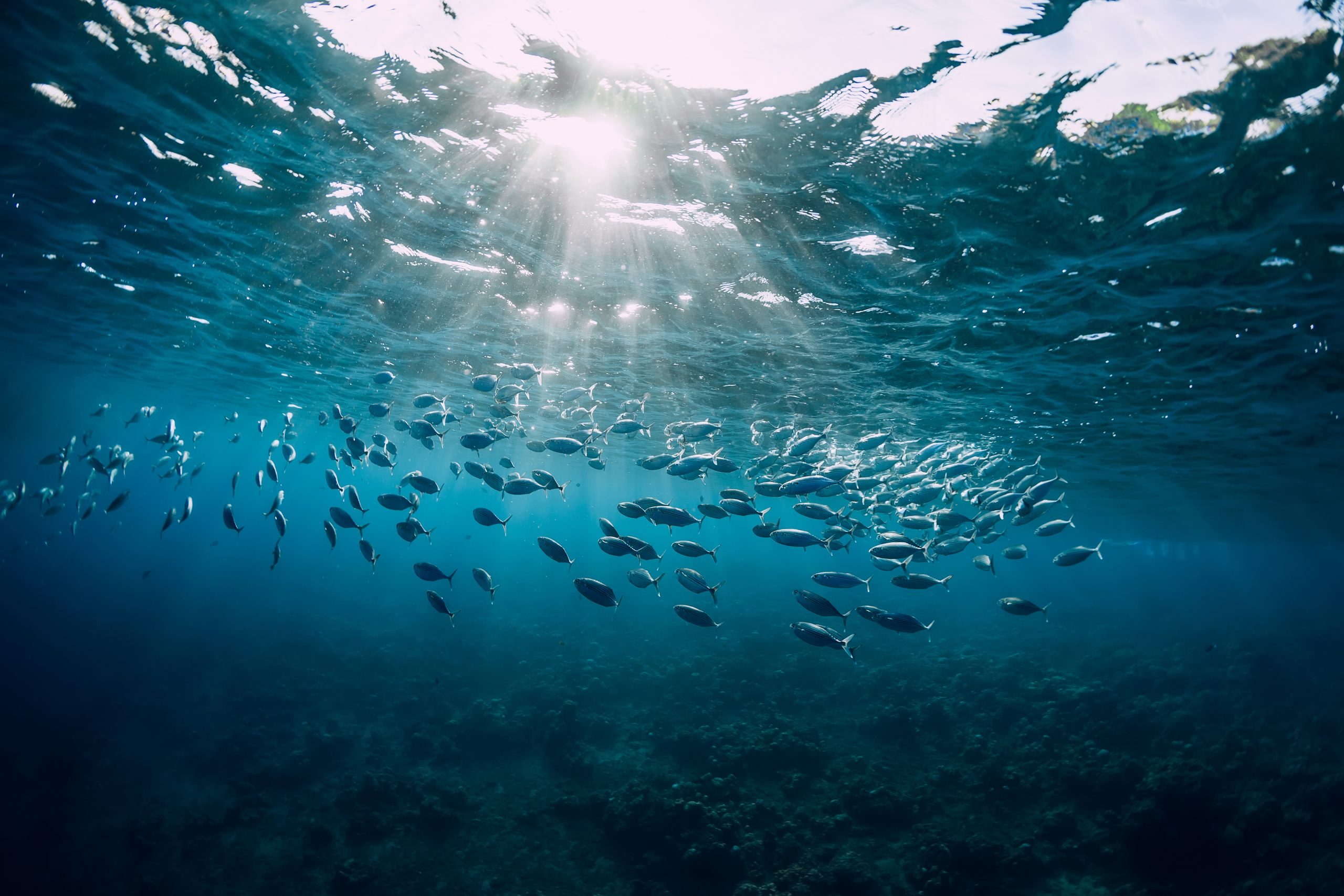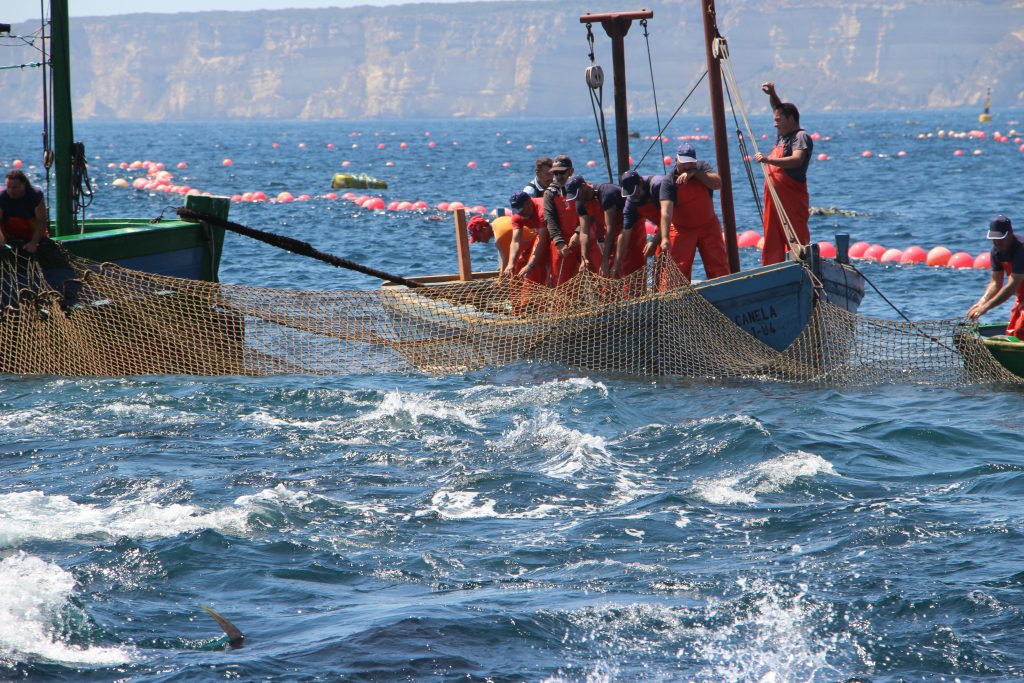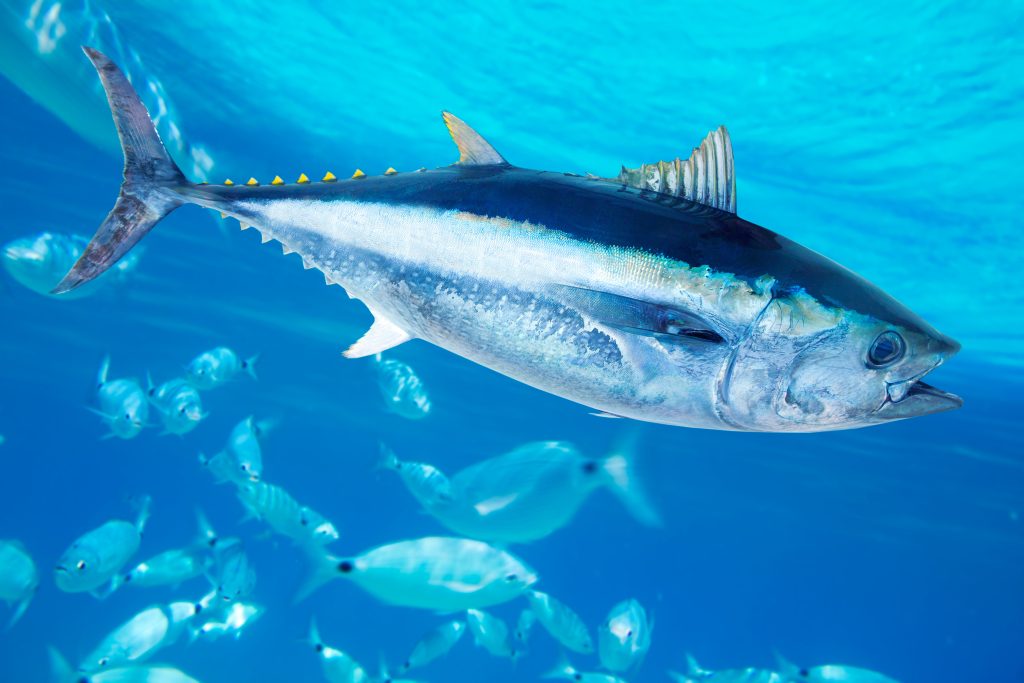Celebrating International Tuna Day

As we recognise World Tuna Day, we note that the sustainability of tuna fishing is a key motivation for the Food and Agriculture Organization of the United Nations (FAO). With the Common Oceans Tuna project, the FAO aims to ensure that all major tuna stocks are fished at sustainable levels by 2027, reducing overfishing and preserving biodiversity.
This article explores the current challenges of tuna fishing regarding sustainability and how certifications support the specificities of this sector.
The primary sustainability challenges facing the tuna industry today
The growing global demand for seafood—particularly tuna—has intensified the need for sustainable production systems that safeguard fish stocks and protect marine ecosystems. Meeting this demand sustainably is not only critical for ensuring long-term supply but also for restoring depleted tuna populations and maximizing the economic and food security value of these fisheries.
Among the most pressing challenges is the overfishing of certain high-value tuna stocks, which threatens their long-term viability. This pressure is compounded by the incidental capture of non-target species (bycatch), which disrupts marine ecosystems and endangers vulnerable species altering the functionality of the nature systems.
Governance also remains a major challenge. Illegal, unreported, and unregulated (IUU) fishing, despite regulatory and management improvements in many regions, continues to hinder conservation efforts and distort markets, with negative consequences for both environmental sustainability and economic fairness.
At the same time, the social dimension of sustainability in tuna fisheries cannot be overlooked. The tuna industry provides employment and income for millions of people in coastal communities, but in some contexts, concerns persist regarding labor conditions and workers’ rights within certain supply chains.
Finally, effective international cooperation is essential. Tuna stocks often migrate across jurisdictions, requiring coordinated management by coastal States and Regional Fisheries Management Organizations (RFMOs). Without strong collective governance, sustainability goals remain out of reach.

How can certification programs mitigate these issues for tuna fishing businesses?
Certification programs provide a robust framework to promote sustainable fishing practices and address the key environmental, governance, and social challenges facing the tuna industry. They are instrumental in demonstrating a fishing company’s commitment to resource sustainability, thereby meeting the growing expectations of consumers.
Beyond meeting consumer expectations, certification helps distinguish a highly commoditized product, enabling greater market access and building stronger commercial relationships with buyers who prioritize not only high quality but also sustainability. In this sense, certification serves as a value-adding tool that sets tuna products apart in a competitive and standardized global market.
Certification programs provide the solid structure needed to encourage best practices. This is achieved through several mechanisms, most notably:
- Promoting science-based fisheries management, with tools that help maintain healthy fish stocks and avoid overfishing;
- Encouraging fishing companies to adopt bycatch reduction measures and ecosystem impact mitigation practices, helping to preserve vulnerable species and marine communities, and;
- Applying pressure on management bodies to ensure regular monitoring, performance evaluation, and meaningful stakeholder engagement.
It is also important to highlight the role of Chain of Custody certifications, which help combat IUU fishing by ensuring full traceability across the supply chain. This minimizes the risk of tuna products from illegal or unverified sources entering certified markets, thereby rewarding responsible fishing operations and creating a market-driven incentive for improvement.
What specific standards or guidelines are critical in the certification process for tuna fishing?
One of the most widely applied benchmarks for fisheries certification globally is the Marine Stewardship Council (MSC) Fisheries Standard, which is particularly relevant to tuna.
This standard is built on three core principles: The status of the target stock; The environmental impact of the fishing activity, and; the effectiveness of the fishery management system.
In addition, fisheries must comply with traceability requirements under the Chain of Custody Standard, ensuring that the final product genuinely originates from a certified source.
These standards are rigorous and science-based, and are periodically updated to reflect the latest developments in fisheries science and sustainable management practices. In the context of tuna—where many fisheries are transboundary or highly migratory—cooperation between States and regional fisheries management organizations (RFMOs) is also a critical consideration in the assessment process.
Other standards include:
Community Catch is an initiative dedicated to supporting the sustainable development of small-scale fisheries by leveraging market demand. Its vision is to create a world where small-scale fishers contribute to and benefit from the sustainable use of fisheries resources. The initiative connects small-scale fishers to markets that offer the greatest benefits for fishing communities and their environment, ensuring they have a voice in sustainable fish and seafood markets, which are crucial for coastal communities, marine ecosystems, and global food security. Founded by a team with over 40 years of experience in small-scale fisheries and 25 years in fishery certifications, Community Catch collaborates with fishers, retailers, processors, distributors, NGOs, and certification experts to promote sustainability and market access.
The Fair-Trade USA Capture Fisheries Standard is designed to promote sustainable fishing practices and improve the livelihoods of fishers and their communities. It ensures that fishing practices are environmentally sustainable, protecting marine ecosystems and fish populations. Fishers are guaranteed fair wages, safe working conditions, and their rights are upheld. The standard supports community development projects funded by a Fair-Trade Premium, an additional sum of money paid on top of the selling price. It also implements robust traceability systems to ensure that fish and seafood products can be traced back to Fair Trade Certified fisheries.
The Naturland Capture Fish Standard focuses on promoting sustainable and socially responsible fishing practices. It ensures that fishing practices are environmentally sustainable, protecting marine ecosystems and fish populations. The standard guarantees fair working conditions, fair wages, and respect for human rights. It supports community development through various initiatives and projects and implements robust traceability systems to ensure transparency and accountability in the supply chain. Naturland provides certification for fisheries that meet stringent criteria of sustainability and social responsibility.
The Responsible Fishing Vessel Scheme (RFVS) is a voluntary, vessel-based certification program that ensures high standards of operational practices, crew safety, and welfare on fishing vessels. It focuses on vessel management and safety systems, certifying vessels based on their management and safety systems to ensure best practices are followed. The scheme emphasizes crew rights, safety, and wellbeing, adhering to international conventions like the Work in Fishing Convention (ILO C188). It provides global recognition, assuring the seafood industry that certified vessels meet high standards of responsible fishing practices, and uses third-party audits to verify compliance with the standards.
The FISH Standard for Crew focuses on ensuring fair and ethical labor standards on board fishing vessels. It aims to assure seafood buyers that the fish they purchase is harvested by crews who are recruited and hired ethically, treated with respect, paid properly, and have processes to address grievances. The standard draws on international agreements like the ILO Work in Fishing Convention (C188) to ensure high standards of crew welfare. It involves third-party audits to verify compliance, providing credibility and assurance to stakeholders.

How are tuna fishing practices monitored for the certification process?
Transparency is a cornerstone of a solid certification. For a fishery (including tuna fisheries) to obtain and maintain certification, its practices must be subject to rigorous and ongoing monitoring over time.
The process begins with an independent assessment conducted by a team of experts, who evaluate scientific data on the status of the target stock, the environmental impacts of fishing activities, and the effectiveness of the fishery management system. While certain baseline data requirements apply to all fisheries under assessment, the verification mechanisms may vary depending on several factors, including the geographical location of the fishery, the species targeted, and the governance context.
The monitoring approach depends on the standard applied. If we focus on the MSC Fisheries Standard, once a fishery is certified, it retains certification for a period of five years, subject to annual surveillance audits are conducted. These audits ensure that the fishery continues to comply with the standard, through on-site inspections, document reviews, and interviews with relevant personnel.
Certification programs often involve a wide range of stakeholders, who are actively engaged throughout the assessment and monitoring process. Their participation provides diverse perspectives and insights, contributing to a more robust and context-sensitive evaluation of tuna fisheries.
How can achieving sustainable tuna certification create a competitive advantage in a market under increasing scrutiny from consumers and regulators?
Certification plays a crucial role in product differentiation, particularly in the later stages of the product life cycle. Sustainability certifications, such as the Marine Stewardship Council (MSC), assure consumers that the tuna has been caught responsibly — avoiding overfishing and minimizing environmental impact. This assurance is increasingly important in a market where consumers are more conscious of sustainability and willing to pay a premium for products that meet these standards.
This differentiation can generate several tangible benefits, starting with increased product value. Additionally, certification can unlock new market opportunities. Many major retailers and food distributors—such as Carrefour, Lidl, and Walmart— and some of the world’s largest tuna marketers have adopted sourcing policies that prioritize certified sustainable products. As a result, certified fisheries gain preferential access to these markets, which can lead to higher sales volumes and a stronger competitive position.
Certification also contributes to enhancing a company’s reputation. In a marketplace where transparency and corporate social responsibility are increasingly valued, companies that demonstrate a clear commitment to sustainability can strengthen their brand and build deeper consumer loyalty.
Moreover, sustainable certification can drive innovation and operational efficiency within the company. By adopting more responsible fishing practices, fisheries may identify more efficient, cost-effective, and environmentally friendly methods, which can reduce long-term operational costs and improve the economic viability and resilience of the business.

How can we help you?
Are you looking for a certain service or do you have any questions about the certification program? Let us know. We’re glad to be of help.